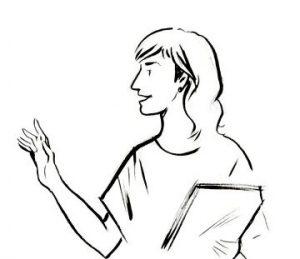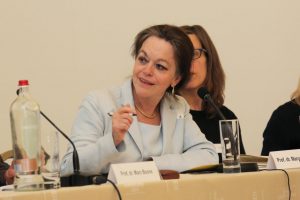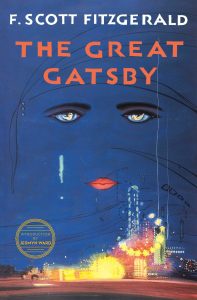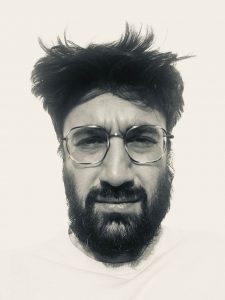ACLA
Next week, five 20cc members will be speaking at the (online) annual meeting of the American Comparative Literature Association (ACLA). Tune in!
- Eline Batsleer, “Guardians of the hearth or empowered citizens? The birth of the ‘Eva neo-latina’ in the Italian periodical press (1914-1918)”
- Wibke Schniedermann, “Boccaccio’s Didactic Chicken: Delayed Gratification and the Gender Debate in the Decameron“
- Zoë Ghyselinck, “Necrodialogues and Media. Denunciating social injustice and dethroning literary prestige?”
- Delphine Munos, “Narrativising Indefinite Detention in Refugee Tales”
- Cedric Van Dijck, “Mulk Raj Anand in the Mud”
PhD vacancy at VUB
Applications are invited for a full-time PhD position in literary studies at Vrije Universiteit Brussel. The PhD student will work as part of the FWO-funded project “Broadcast Biographies. Innovations in Genre and Medium (1945-2020).” More info can be found here.
Featured Member: Eva Van de Wiele (Comparative Literature)

Who are you?
My name is Eva Van de Wiele, I’m a PhD student in the department of literary studies and, more specifically, an early career comics scholar. Prior to working with Prof. Maaheen Ahmed on an ERC funded project, I worked for nine years as a language teacher at the University Language Center, teaching Dutch to foreign students and Spanish and Italian to adults who were about to go on an Erasmus stay or move to countries where these languages were spoken. With a Masters in Spanish and in Italian, I think the most honest answer to the question ‘who are you’ is that I am culturephile with a small obsession for the Mediterranean.
What do you work on?
My doctoral research is part of the ERC Project: Children in Comics (2018-2023). The project will offer an intercultural history of the representation of childhood in children’s comics from Europe during the long twentieth century. My personal investigation is centered around two magazines for children containing comics, which came to epitomize the format in Italy and Spain: Corriere dei Piccoli and TBO. In order to come to new insights into these magazines’ histories I draw on seriality studies and I look at these magazines in a global context. This helps me to understand the spread of international comics’ material in these magazines before Mickey Mouse and Tarzan started to flood the market in 1932, and forever alter European children’s comics.
What are your plans for 20cc?
Since I’m trying to wrap up my PhD by May 2022, the most reasonable future plan for 20CC would be to present my findings to interested colleagues. With Prof. Ahmed I will be organizing a conference to purposefully end the ERC project in 2023. Some interesting collaborations have already happened: with Dr. Busi Rizzi I have arranged a Summer School on Italian comics this summer. Together we will engage to build a network of scholars studying Italian comics (fumetti). I have also had the pleasure of writing a chapter for an edited volume on Comics and Education with Dr. Michel De Dobbeleer and Prof. Mara Santi. And, I duely want to thank Dr. Van Puymbroeck for her support and good advice as my godmother at our Faculty.
Image credit: Josean Morlesin
Featured Member: Marysa Demoor (English Literature)

Who are you?
My name is Marysa Demoor, I’m a senior full professor in English literature and, foremostly, a Victorianist. My work on the late Victorian literary scene led me, automatically, to follow some of the authors and some of the periodicals I worked on into the twentieth century. The founding of the Modernist Studies Association at the end of last century stimulated my interest and my work on the Athenaeum before, during and after the First World War compounded that. As a result, I started to publish on modernism and designed a course on the subject at master level: “Towards Modernism and Beyond”.
What do you work on?
Since this early work on modernism and the publication of several articles (on early magazines such as the Blue Review, Rhythm and the post-war Athenaeum) and a book (on authorship, with amongst others, essays on Virginia Woolf and Henry James), I started to research the cross-fertilisation between Great Britain and Belgium and the emergence and elaboration of nationalism in the long nineteenth century from Waterloo up to and including World War One. Since then I’ve moved on again to nineteenth-century medical journals on one hand and European royalty in the nineteenth century on the other.
What are your plans for 20cc?
Since I’m retiring at the end of this academic year I don’t have any manifest future plans for 20CC. With Dr Van Dijck and Dr Van Puymbroeck, I’m in the process of editing a collection of essays on First World War Periodicals that, to a certain extent, addresses the confrontation of modernism with war journalism. And, of course, I will continue my research, so who knows? If anything comes up that fits under the scope of 20CC I will duly report it and engage with it.
A few highlights from Prof Demoor’s bookshelf:
- Marketing the author: authorial personae, narrative selves and self-fashioning, 1880-1930
- The intellectual response to the First World War: how the conflict impacted on ideas, methods and fields of enquiry (with Sarah Posman and Cedric Van Dijck)
- Their fair share: women, power and criticism in the Atheneum, from Millicent Garett Fawcett to Katherine Mansfield, 1870-1920
- The Cambridge handbook of literary authorship (with Gert Buelens and Ingo Berensmeyer)
- Dictionary of Nineteenth-Century Journalism in Great Britain and Ireland (with Laurel Brake)
- The Lure of Illustration in the Nineteenth Century: Picture and Press (with Laurel Brake)
- And the forthcoming Belgian mud, British roots: the cross-cultural history of Britain and Belgium in the long nineteenth century

In the News: Birgit Van Puymbroeck on Radio 1
Birgit Van Puymbroeck spoke about the Roaring Twenties and The Great Gatsby on Radio 1. You can listen to it here: https://radio1.be/hoe-roaring-waren-roaring-twenties?deliveryName=DM98457
Featured Member: Tiziano Toracca (Italian Literature)

Who are you (as a researcher)?
In this question, the parenthesis is very reassuring and does facilitate my answer. I would say I mainly engage with contemporary Italian literature. I graduated in law, precisely in labor law, in 2005, with a thesis on the interposition in employment relationships. After graduation, I started working in a law firm and studying for a PhD competition, but then I decided to go back to University to get an education in literature (I wasn’t that old!). I graduated in literary studies and in Italian language and literature, working extensively on Paolo Volponi, one of the greatest Italian writers of the last century. I taught a few years, only occasionally, as a high-school teacher of Italian language and literature and European history. Afterwards, I did a Joint PhD in co-tutorship at the University of Perugia and the University of Ghent, finally defending a thesis on Italian Neomodernism, a category I am still working on, and through which I define a phenomenon of re-emergence of Italian modernism in the period between mid-1950s and the late 1970s. During my doctoral research I dealt in particular with the narrative of Volponi and Pier Paolo Pasolini and, more generally, with the Italian novel of the late XX century. Shortly before the end of my PhD, I began co-directing a Jean Monnet Project on work and social identity; thanks to this project, I felt I somehow bridged together my previous experiences in law with my education and engagement within the literary realm. The project lasted 18 months and ended with a beautiful and inspiring international conference in Brussels attended by philosophers, legal and literary scholars, sociologists, writers and artists. Starting in 2018, I have been working as a postdoctoral researcher at the University of Turin, focusing in particular on the representation of work in modern and contemporary Italian literature. Also in 2018, I was appointed as visiting professor in Ghent where I teach Italian Culture and Italian Literature. I recently published a monograph on Paolo Volponi (Morlacchi, 2020), and a book on law and literature (Brill, 2020) written with a philosopher of law—who happens to be also my partner: Angela Condello. This last work, entitled A theory of law and literature. Across two arts of compromising, is largely inspired by the Freudian theory of literature by Francesco Orlando and is dedicated to Leonardo, our son, born in 2016.
What do you work on?
My research fields are basically the following: the representation of work in modern and contemporary Italian literature (on this topic I have written articles and edited special issues, the last of which for Allegoria, the academic journal in which I have worked as an editor for some years now); the re-emergence of modernism in the form of Neomodernism in Italian literature of the second half of the twentieth century (on this subject I am writing my next monograph in which I will discuss various works by authors such as Mastronardi, Arpino, Bianciardi, Parise, Berto, Volponi, Fenoglio, Consolo, D’Arrigo, Pasolini); the relationship between law and literature (I am always very inspired by the work of Prof. Peter Goodrich).
What are your plans for 20cc?
I have many plans despite the uncertainty that surrounds us and that makes everything more difficult and—sometimes—sad. I have almost finished co-editing some special issues dedicated to research on work and working conditions (Allegoria), to the relationship between literature and economics (Narrativa), to Lucio Mastronardi (L’Ospite ingrato). I will be co-editing two special issues dedicated to work (Ticontre and Rivista di Estetica). Since January 2020 I am member of the CRT Project “Scienza Nuova. Digital Capital” at the University of Torino (PI is Prof. Maurizio Ferraris) and I have been trying to develop intuitions about the transformations of work from the points of view of both philosophy and sociology, as well as from the literary perspective. I am going to write an essay about the experience of Officina, an important Italian journal active between 1955 and 1959 (directed, among others, by Pasolini). In the next few months I plan to work on my monograph on neomodernism. In this perspective, I will participate with great pleasure in an international conference on neomodernism, entitled “Defining the Italian Neomodernist Novel”, to be held in March, in Cambridge (but I will probably attend remotely) and I am collaborating in the organization of an international conference on realism and modernism which will be held at the University of Ghent in the autumn of 2021 (we hope it can happen in person). This last conference is still being planned and it is promoted in particular by the Center for European Modernist Studies (CEMS), of which I am a member. I am really happy to have joined this research group (Twentieth-Century Crossroads) and I am sure that there will be opportunities to meet and deepen together some topics that are relevant to various group members and to myself.
Thank you very much for this interview!